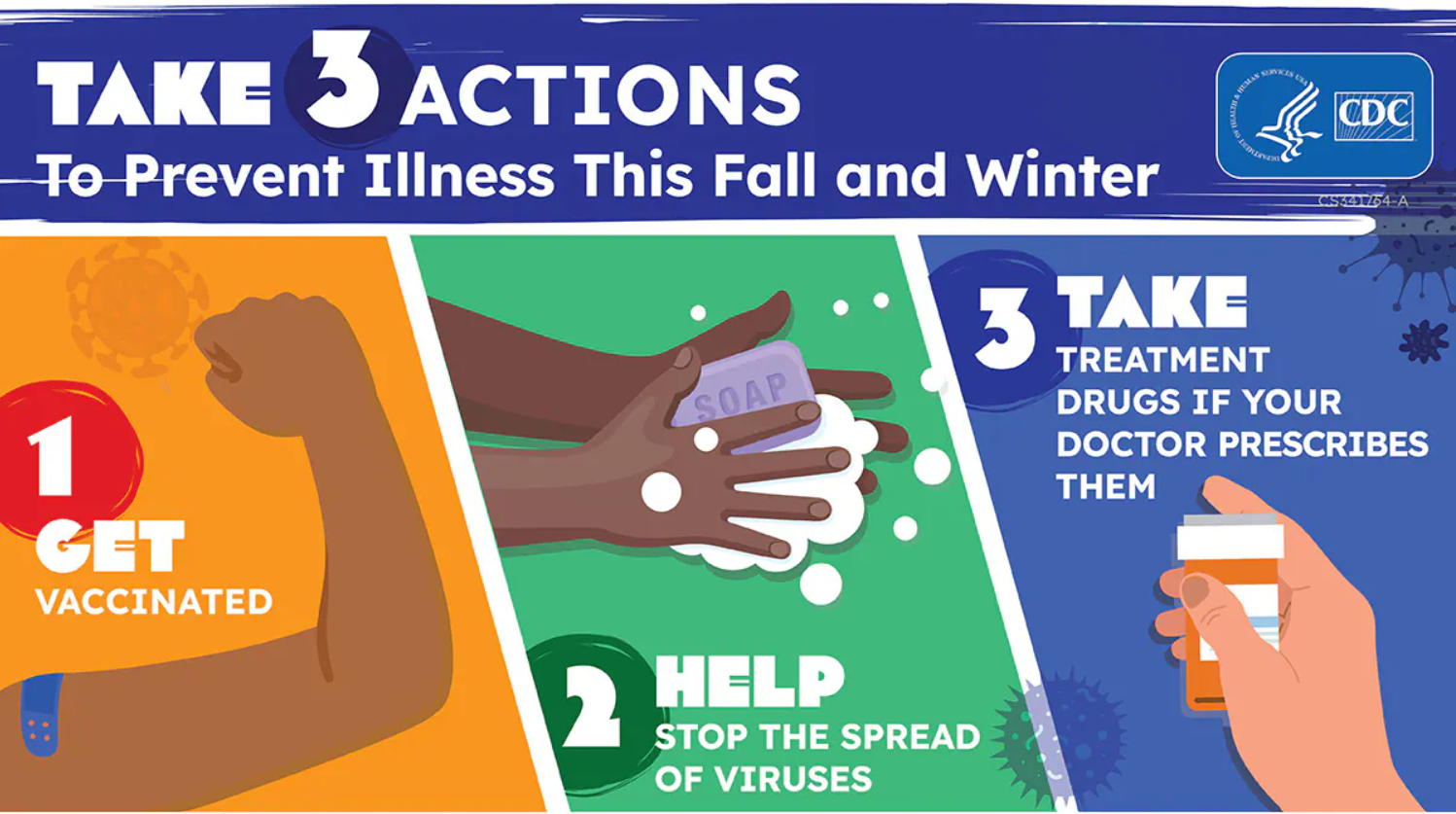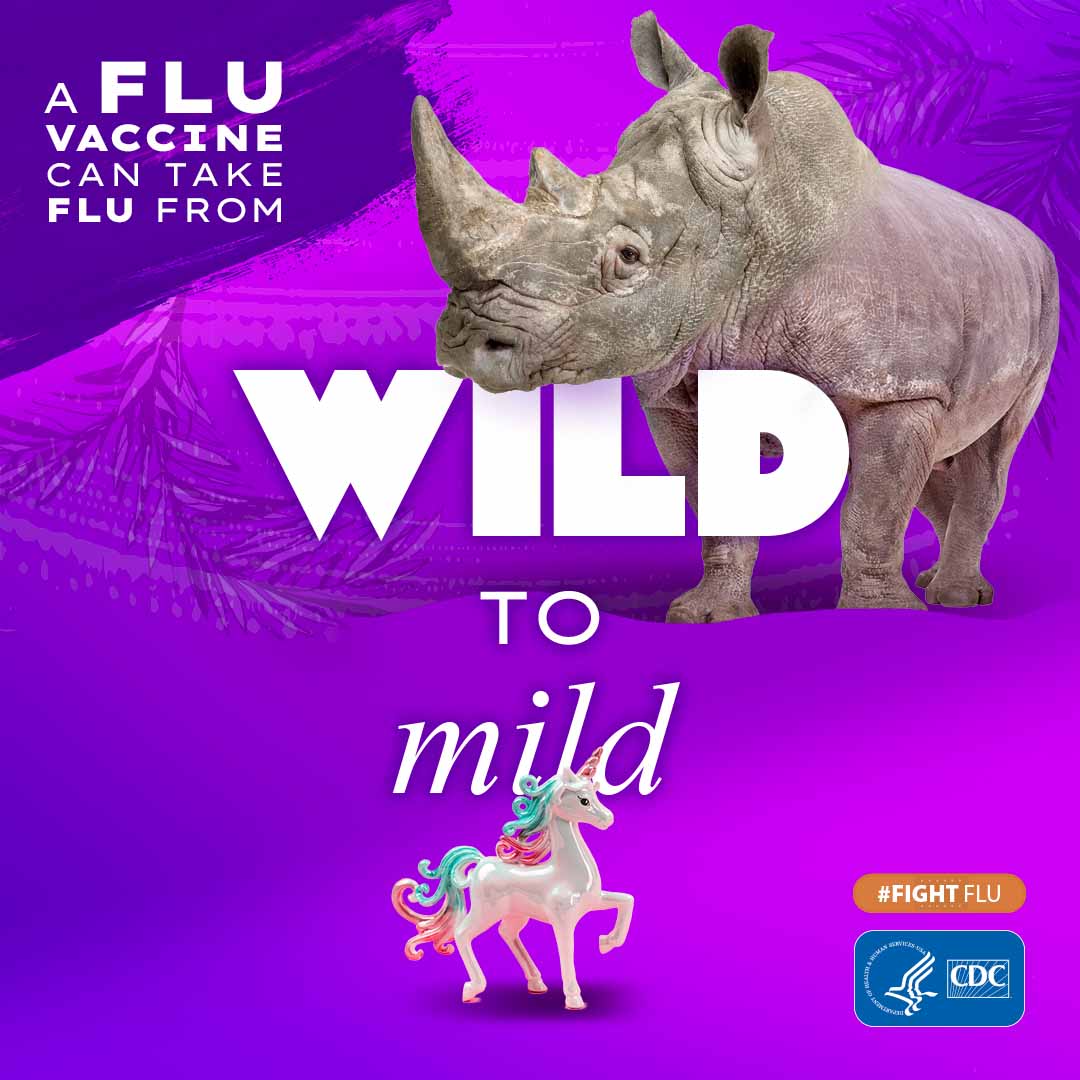Respiratory illnesses like the common cold affect your respiratory, or breathing, system. Viruses like the flu, COVID-19, and RSV cause illness, hospitalizations, and deaths each year.
Reduce your risk of respiratory illness and protect your family with simple prevention steps. If you are at higher risk of severe illness or you are around someone who is at high risk, you can take extra steps to prevent the spread of illness. People at higher risk include babies, young children, older adults, and people with other health conditions.
To protect yourself and others:
Extra steps you can take to protect yourself and others:

Flu 
A flu vaccine can take the flu from wild to mild!
Avian Flu (bird flu)
Bird flu is widespread in wild birds around the world. It is causing outbreaks in poultry, including in Maryland, and U.S. dairy cows. There have been several cases of bird flu in U.S. dairy workers.
While the current public health risk is low, state and national health agencies are monitoring the situation. Farmers and people with backyard flocks should take steps to reduce their risk. Consumers should avoid raw milk and raw mik products and contact with wild birds.
For more information, visit:

